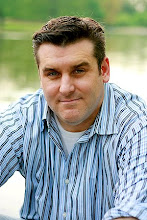This week we transition from stories about Jacob (renamed Israel in Genesis 32:28) to the stories about his children (especially Genesis 34, 35, and 38), culminating in the stories about Joseph being sold into Egypt (Genesis 37) and Potiphar's wife (Genesis 39).
Joseph's example as a stalwart prophet of the Lord is particularly helpful to us as sons and daughters in a sinful world. We should also recall that it was this same Joseph of the amazing technicolor dreamcoat fame that truly saw our day (see 2 Nephi 3:5) and testified of a latter-day seer also named Joseph (see 2 Nephi 3: 6-21) that would bring the Gospel to a remnant of Joseph's seed in the dispensation of the fullness of times in America (see 3 Nephi 5: 21-23). These prophecies have already been fulfilled and are every day more apparent to the LDS people.
The two things that stand out for me from these chapters in Genesis about Joseph's personality is (1) his unbelievable OPTIMISM in the face of true adversity and (2) his unwavering obedience to the commandments of God. I will talk later about how I feel that both are essential keys to our happiness, but let's first look at optimism. Earlier this week a good friend whom I consider a stalwart member of the Church and mother of several small children posted the following comment on Facebook: "I want to be an OPTIMIST :) Is that one of those things you have to fake it 'till you make it? Is it even doable? Can I really change to an unconditional sunny disposition?"
I just spent an unbelievable weekend at a place called the Option Institute in extreme southwestern Massachusetts. This organization is not LDS, but they have many fine self improvement programs including the one I attended last week called "The Happiness Option." In this class we discovered how non-judgmental listening can be the key to help others find their happiness choices, but more importantly we also realized that there are many negative beliefs holding us back which we can choose to hang onto or replace with positive beliefs -- the choice is ours. Just as we can choose to live the Gospel or to reject it, we have the power within us to distance our emotional responses from the negative things that happen to us. Stephen R. Covey calls the ability to widen the gap between stimulus and response our "choice" and correctly says that this ability separates us from the animal kingdom and gives us real power to control our destiny (he also calls it being "proactive"). Barry Neil Kaufman, director of the Option Institute and author of "Happiness is a Choice," contends that if you change a belief or attitude you can change your life. A decision to pursue happiness, he claims, can improve relations with others: "We can engineer our own responses, choosing love over hate, peace over conflict and happiness over depression." The first five sections of the book relate Kaufman's philosophy and offer stories of clients' successful changes while in therapy. Section six has short chapters detailing shortcuts to happiness. The book has a four-page bibliography and two pages of additional readings. A cut above most self-help books; I strongly recommend reading it to my friends. If you have never read "7 Habits of Highly Effective People" by Stephen R. Covey I recommend that book too. So Covey would say definitely fake it 'till you make it to the above question, Kaufman would take it to the next level and say whispering with a grin "Guess what? You don't HAVE TO fake it!
On the subject of the second part of this happiness duo, I would like to recommend another General Conference Talk, this one was given by Elder Marcus B. Nash at the October Priesthood Session of 2006. The talk is called "The Great Plan of Happiness"; I hope you will all want to read it. Enjoy!
Oh, I almost forgot. The reading assignment next week (for Lesson 12) is: Genesis 40–45
Remember who you are!!!
Subscribe to:
Post Comments (Atom)





No comments:
Post a Comment